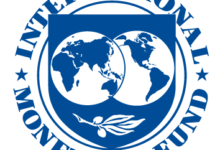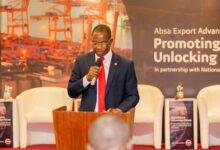Ghana’s plan to integrate nuclear power into its power generation mix is progressing steadily as it has completed the first phase of its nuclear power project.
The first phase, primarily about making the decision to use nuclear power and meeting all the 19 infrastructural needs outlined by the International Atomic Energy Agency (IAEA), is expected to be presented to cabinet next month.
The 19 infrastructural issues include national position, nuclear safety, funding and financing environmental protection, stakeholder engagement, etc.
Ing Theophilus Nii Okai, Executive Director, Nuclear Power Ghana (NPG) who disclosed this when the NPG hosted a training workshop for some selected media personnel in Accra on Monday said, the first phase which involves government’s commitment to embark on the programme was carried out by local engineers.
He said the second phase of the programme which includes the implementation of the decisions made in the first phase would commence before the end of this year.
The third phase of the programme he explained would involve the construction and will conclude with the commissioning and operation of Ghana’s first nuclear power plant.
The aim of the training workshop was to sensitise journalists on matters relating to Ghana’s nuclear power programme. NPG which was formed as a limited liability company in July 2019 and is sponsored by the Bui Power Authority (BPA), the Volta River Authority (VRA) and the Ghana Atomic Energy Commission (GAEC).
The workshop featured presentations on the fundamentals of nuclear power, Ghana’s nuclear power journey, the organisations responsible for nuclear power development in Ghana, and how the country plans to address the safety and waste concerns of nuclear power.
He said the timely implementation of this policy would go a long way to fulfil the country’s quest to provide secure, reliable and clean energy for sustainable national development and to also achieve the vision of being a net exporter of electricity to sub-region.
He said nuclear power had many benefits including very low operating costs, zero carbon emissions, reliable power generation, huge employment opportunities, and stable fuel supply adding that “between 400 to 700 people can be employed to work at one nuclear plant”.
Dr Stephen Yamoah, Deputy Director, NPG speaking on the topic ‘Nuclear safety and waste management’ said currently, nuclear power was the only large-scale energy production technology that takes full responsibility for all its waste.
He said the amount of waste generated by nuclear power was very small compared to other thermal electricity generation technologies.
“A satisfactory means of disposal has been developed and is being implemented across the world. The radiological effects of nuclear power on people and the environment can be avoided, and statistically nuclear power has proven to be the safest source of power generation per Terawatt-hour (TWh),” he said.
Mr William Owuraku Aidoo, Deputy Minister of Energy in charge of Power and Chairman of Ghana Nuclear Power Programme Organisation (GNPPO) who addressed the opening of the training said Ghana had the requisite expertise to see to the full implementation of the nuclear programme.
He said many countries were using nuclear power to embark on heavy industrialisation adding that Ghana could not be left behind.
He urged the media to disseminate the benefits of the nuclear power to change the wrong perception some people have about it.
Mr Fred Oware, Chief Executive of Bui Power Authority and Board Chairman, NPG said understanding of the nuclear power industry by the media would help to dispel the myths surrounding it.
“We are building your capacity to enable you to communicate effectively on issues bordering on nuclear power as understating of the issues are very critical if we are to succeed as a nation,” he said.
He said all governments have identified key areas for industrialised growth and notably among them are, bauxite, alumina, aluminum industry, the iron ore industry, the trans-regional railway network and processing of all raw materials into finished products, among others.
He said all industrially developed countries rely on cheap power supply to make these industries profitable and globally competitive.
Ghana started exploring the possibility of harnessing nuclear energy for power generation in 1963 when the reactor project was launched
The project was abandoned in 1966 and nuclear power development in the country came to a halt until a series of power crises rekindled the discussion on nuclear power generation.
The body mandated to oversee the implementation of the nuclear power programme is the Ghana Nuclear Power Programme Organisation (GNPPO).
GNPPO works closely with two other key organisations Nuclear Power Ghana (NPG) and the Nuclear Regulatory Authority (NRA).
BY DAVID ADADEVOH






